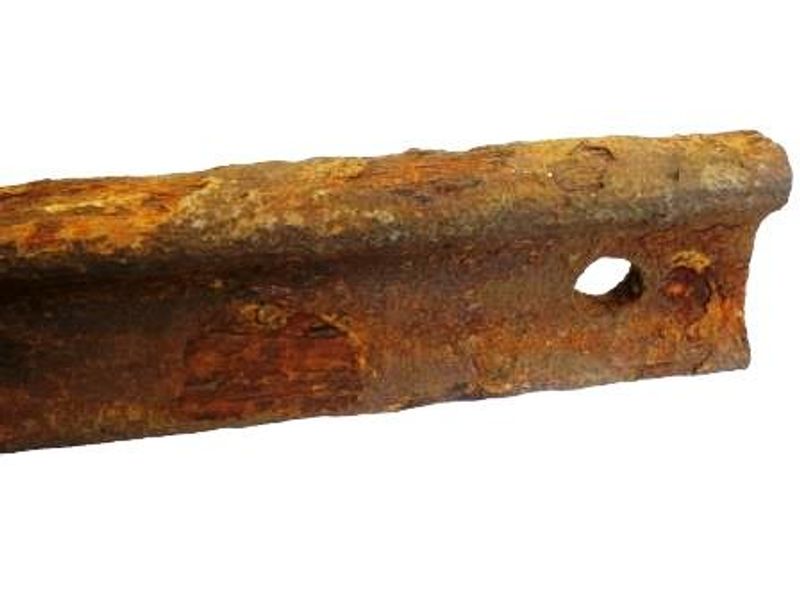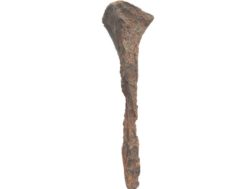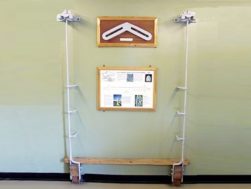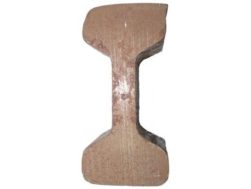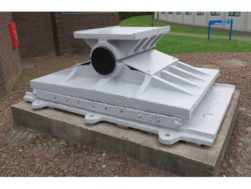Description
A section of wrought iron edge rail found in the River Irvine immediately downstream of Laigh Milton Viaduct on the former Kilmarnock & Troon Railway during its refurbishment in 1995-96. It shows signs of wear or “lipping” (see https://ice-museum-scotland.hw.ac.uk/product/2024-001/).
Two shorter section have been cut from it and are in the collection (see https://ice-museum-scotland.hw.ac.uk/product/1995-008-2/).
May possibly have superseded the cast iron plate rails (see see https://ice-museum-scotland.hw.ac.uk/product/1995-007/) used on the railway until about 1846.
The Laigh Milton Viaduct on the Kilmarnock & Troon Railway, believed to be the world’s oldest viaduct on a public railway, was the work of leading civil engineer William Jessop. The double-track, horse-operated railway was opened in 1812, mainly for the export of coal, although it soon carried passengers. In 1816 it was the first railway in Scotland to operate with a Stephenson steam locomotive; nine years before the Stockton & Darlington.
Numerous significant railway relics were found during the restoration and this is just one of a number of them donated to ICE Scotland Museum.
For a detailed description of the conservation works click here.
Professor Roland Paxton wrote a paper for the Journal Historical Studies in Civil Engineering of the Japan Society of Civil Engineers. To read the paper click here.
For a general description and images of early cast iron plate railways see https://tringlocalhistory.org.uk/Railway/c03_track.htm.
For a film of the restoration works click here.
For an article on the history of the Kilmarnock & Troon Railway written by John Yellowlees in the Scotsman newspaper (dated 25 August 2022) click here.

